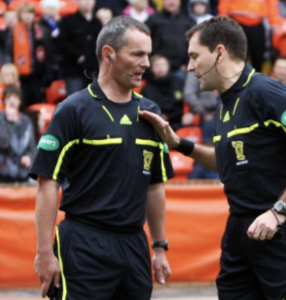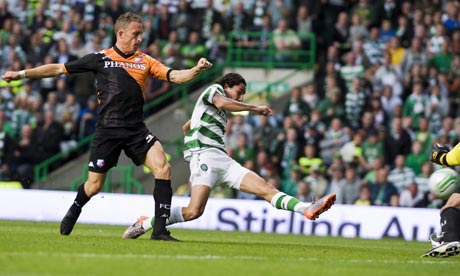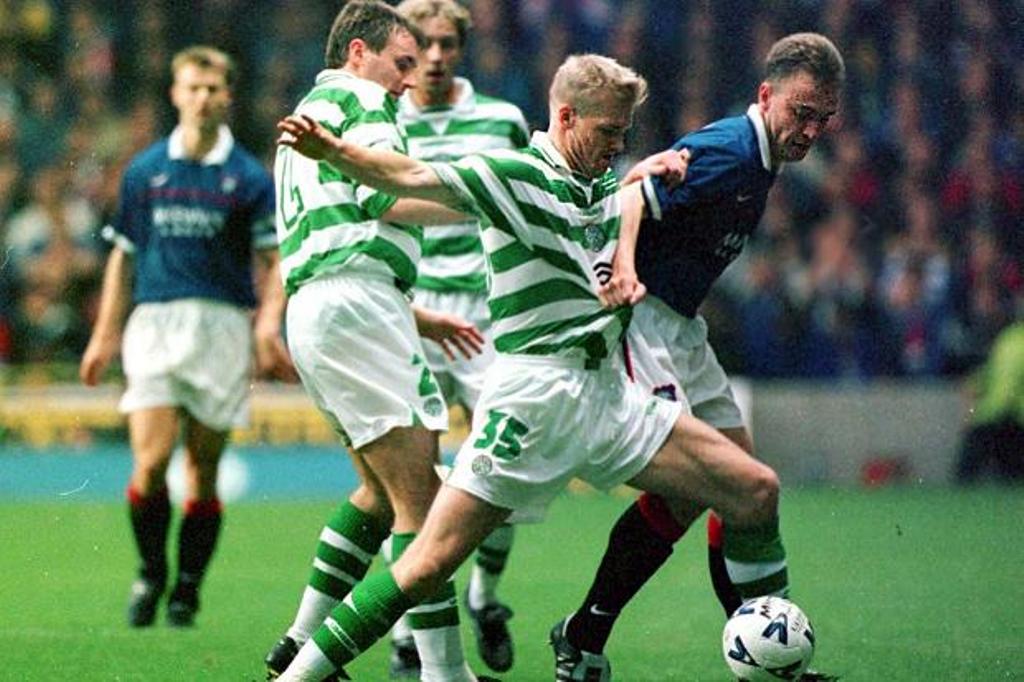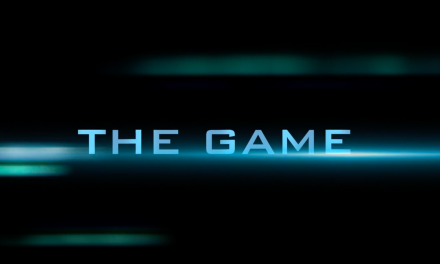
A number of years ago, I worked with someone who was an official in top-flight SPL games. We didn’t discuss officiating that often, but occasionally, when we did, the subject of bias towards Rangers came up. This guy was a Celtic fan, but explained that when working at a game, you do not have time to think about a decision’s consequences on your team.
He stated that, “By the time you’ve got to that level, you’d been officiating for so long, that decision making became automatic. If you see a foul, you gave a foul. If you see offside, you give offside. It is automatic, with any consequences to your team thought about afterwards.” He did agree, however, that Rangers seem to benefit from marginal decisions more than any other team. And he said that it was something that was discussed informally by the officials he was friendly with.
He wasn’t part of that elite group of referees that everyone could name, and so there was a more open and honest discussion amongst his colleagues about the acceptance that Rangers benefited, either during a game or more globally, in terms of their title and trophy aspirations, on marginal calls.
The officials agreed that some element of unconscious bias would be part of this marginal called decision making but the events of this week have really resonated with his and his colleagues’ perception as to why this was the case – They all agreed that a marginal call to the benefit of Celtic or the detriment of Rangers, was analysed in the media to a much greater extent than vice versa. They all agreed, therefore, that they hesitated fractionally more on a 50/50 call in those circumstances. Consequently, that hesitation of just a second or two could mean that the ball had moved on considerably and it was too late to bring back and make the decision. Therefore, the consequence would be that in the case of a marginal (55/45) decision to the benefit of Rangers, a decision would be made straight away (i.e. They see the foul, they give the foul).
A marginal call, 55/45, to the detriment of Rangers or the benefit of Celtic, would have those officials pausing for a extra second to re-review the events in their head. But in those split seconds of re-reviewing the decision, play had moved on and calling it back would be difficult. That doesn’t mean it happens on all occasions, but it does mean there’s a marginal benefit to Rangers old and new of that pause. Not all marginal decisions are subject to that call, and mistakes will be made, but over the length of a season or more, you’ll start to see one team have the marginal benefits.
I left Celtic Park on Thursday evening and got into the car to hear Radio Scotland talking about the “blatant” offside nature of Celtics goal and how it “wasn’t even close”. I have subsequently looked at the pictures, and obviously, those were statements made by people who don’t understand the game. Kyogo may have been “obviously” in front of the Hearts defenders, whereas the multiple reviews of this decision have showed it is unclear whether he was in front or behind the ball, which is all that matters in this decision. It is the fact that this decision is being analysed three and four days later that illustrates the point made by my officiating colleague.
Where was the analysis of Celtic’s chopped off goal against Hearts in the opening game of the season? Where has been the analysis of the marginal calls in favour of Rangers this season?
I don’t believe we have a conspiracy against Celtic. A conspiracy would imply that the officials get together and decide what they’re going to do. I do believe we have some pretty awful referees in this country who are bad for all clubs. And I do believe we have a particular problem that we draw all our officials from the Lanarkshire area, who are more likely to be Ranger supporters than supporters of other clubs and despite their best efforts to be neutral, unconscious bias cannot then allow these officials to make perfect decisions. But I also have always agreed with the culture that marginal calls in favour of Celtic and against Rangers, generate far more press scrutiny than the other way round.
It’s an ongoing joke that the three most used words in Scottish football are, “Penalty to Rangers.” The expectation of supporters is that that call will be made more in games when Rangers are drawing or losing. That might just be a part of confirmation bias among supporters, but where has there been any analysis? Celtic get one marginal call (and no one has yet been able to prove it’s the wrong call) for a 1-0 win against Hearts, and it’s being analysed to the nth degree.
The problem in Scottish football is not a conspiracy, it is a culture. It is a press culture. It’s a media culture. It is an everything culture. Someone in the game recently said to me “Admittedly we have some shit refs, but the biggest problem is refs being shit scared to make decisions negatively affecting Rangers.”
Our problem is a culture, not a conspiracy.





